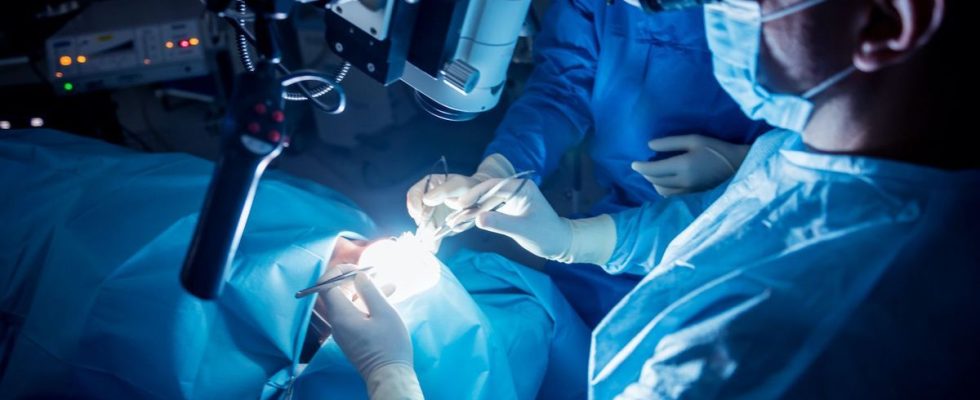Published on
Updated
Reading 3 min.
In the United States, a musician who suffered from a frontal lobe tumor was offered to play his instrument during surgical removal. The goal is to best guide the surgeons’ actions and thus avoid touching essential areas of the brain. The images are impressive.
The idea of undergoing brain surgery while conscious can sound like a nightmare to many. But in the case of Christian Nolen, an American guitarist affected by a frontal lobe tumor, this option made it possible to best preserve his faculties during the removal of the famous cancerous tumor. A surprising case spotted by The New York Post.
Wake up the patient during the ablation, but what idea?
The neurological team at the Sylvester Comprehensive Cancer Center at the University of Miami came up with this idea themselves: since the tumor was starting to cause problems with the patient’s left side, particularly the dexterity of his left hand, play the patient during the ablation would then allow them to evaluate the scope of their gesture and protect their manual dexterity while being as aggressive as possible.
A less dangerous decision than you might think: “When a tumor involves or approaches a critical part of the brain – something that controls the ability to speak or understand language or move – we want to perform the operation while awake to continually monitor the patient , so the team knows if it impacts normal brain functions” explained Ricardo Komotar, director of the center’s brain tumor program.
When the patient is asleep, the surgical team, on the other hand, cannot obtain information. “Surgeries actually become much more dangerous because you can remove a tumor that involves normal brain function and cause real damage without knowing it,” did he declare.
He plays Deftones during the operation and saves his hand
Christian Nolen’s operation was planned 10 days after the discovery of the tumor. The anesthesiology team then put the patient to sleep at the start of the open craniotomy, but he was awakened during a delicate part of the two-hour procedure. Once he was informed what was happening, the care team gave Nolen a guitar and asked him to play. He then did his best to play some of the songs from the Deftones and of system of a Down, while surgeons constantly monitored hand function. This way, doctors assure him, they were able to remove the entire tumor without hurting his hand. “It’s crazy”the main person concerned was moved during the intervention.
Not so crazy procedures
Although a patient playing guitar during surgery is not an everyday occurrence, operating on the brains of awake patients is not so rare after all. We interviewed Professor Hugues Duffau of Montpellier University Hospital, who had been carrying out this type of operation since 1996. IN 2019, an operation of this type was even broadcast live on Facebook.
The Miami surgeon admits to performing several each week. “Most patients are intrigued by the process.” Patients can then frequently speak, sing, move their hand, without feeling pain.
This practice would also be much more advantageous than anesthesia over the entire length of the procedure, to detect the areas to be preserved, but also in terms of recovery. “The less anesthesia you use during your procedure, the better the patient wakes up. The quicker they wake up, the quicker they get up and walk around, and the quicker they go home.” adds Dr. Komotar. And naturally, the longer you stay in the hospital, the more complications you have.”
However, it is not considered if there is a history of convulsions or if there is a risk of intolerance to the process. A confused or agitated patient can compromise the procedure. But without arousal, the ablation may also be less complete. Without continued feedback from the patient, the surgical team cannot be as aggressive in removing the tumor. “We only remove what we know to be definitively safe and we leave in anything that is questionable.”
